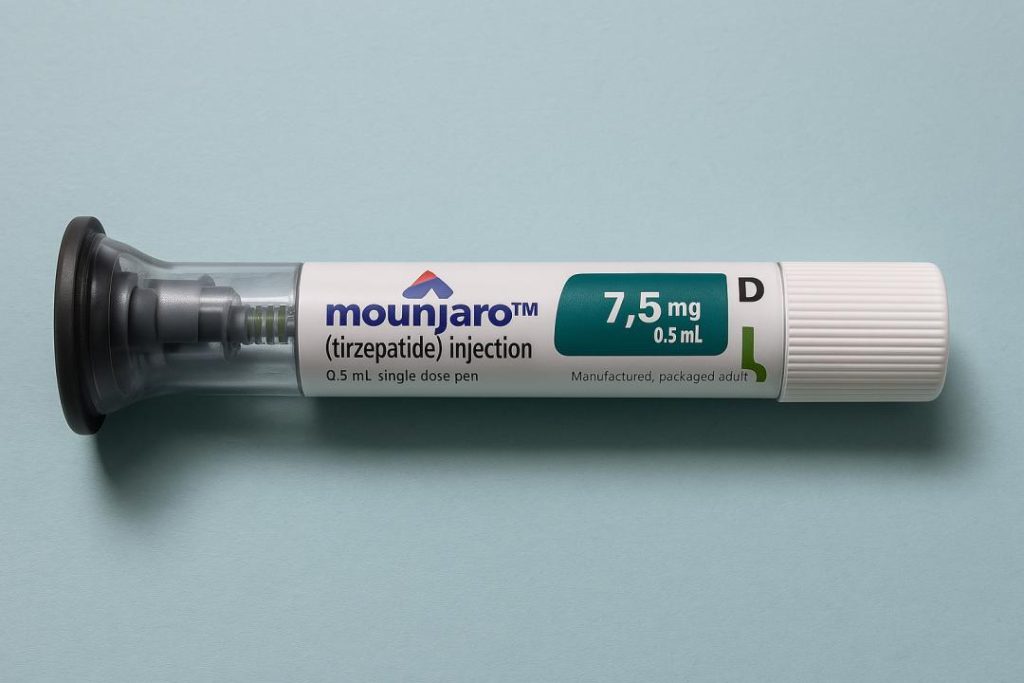
New Study Shows Tirzepatide Benefits Heart and Kidney Health
For individuals living with type 2 diabetes and obesity, managing their health is a top priority. A new study published in JACC: Advances has shed light on the impressive benefits of tirzepatide, a medication that not only helps regulate blood sugar levels but also reduces the risk of heart attack, death, and kidney injury. The findings suggest that tirzepatide may be a game-changer for patients already living with cardiovascular disease.
The study, conducted by a team of researchers at the University of Colorado Anschutz Medical Campus, analyzed data from over 2,400 adults with type 2 diabetes and obesity. The participants were randomly assigned to receive either tirzepatide or a GLP-1 (glucagon-like peptide-1) receptor agonist, a type of medication commonly used to treat type 2 diabetes. The results were nothing short of remarkable.
The researchers found that tirzepatide significantly reduced the risk of heart attack, death, and kidney injury compared to GLP-1 receptor agonists. More specifically, the study showed that tirzepatide:
- Lowered the risk of major adverse cardiovascular events (MACE), which include heart attack, stroke, and death, by 27%
- Reduced the risk of cardiovascular death by 32%
- Decreased the risk of acute kidney injury by 44%
These findings are significant, as they suggest that tirzepatide may be a more effective treatment option for patients with type 2 diabetes and obesity who are at risk of cardiovascular disease. The study’s lead author, Dr. David D’Alessio, notes, “These results are important because they show that tirzepatide can provide broader benefits for patients with type 2 diabetes and obesity, beyond just improving blood sugar control.”
So, what exactly is tirzepatide, and how does it work? Tirzepatide is a medication that belongs to a class of drugs called glucagon-like peptide-1 receptor agonists. It works by mimicking the action of a natural hormone in the body, GLP-1, which helps regulate blood sugar levels and insulin production. By stimulating the GLP-1 receptor, tirzepatide helps to:
- Reduce blood sugar levels
- Increase insulin production
- Delay gastric emptying, which helps to reduce hunger and increase feelings of fullness
Tirzepatide has been shown to be an effective treatment for type 2 diabetes, with studies demonstrating its ability to improve blood sugar control and reduce the risk of cardiovascular events. However, the new study provides further evidence of its benefits, highlighting its potential to reduce the risk of heart attack, death, and kidney injury.
But what do these findings mean for patients, and how can healthcare providers incorporate tirzepatide into their treatment plans? For patients, the study’s results offer hope for a more effective treatment option that can help manage their type 2 diabetes and reduce their risk of cardiovascular disease. For healthcare providers, the findings provide a new tool to consider in their treatment arsenal, particularly for patients who are at high risk of cardiovascular events.
Of course, as with any new medication, there are potential risks and side effects to consider. Tirzepatide has been shown to cause nausea, vomiting, and diarrhea in some patients, as well as increased risk of pancreatitis and thyroid cancer. However, the benefits of tirzepatide far outweigh the risks, particularly for patients who are at high risk of cardiovascular disease.
In conclusion, the new study on tirzepatide provides a wealth of information for patients and healthcare providers alike. By reducing the risk of heart attack, death, and kidney injury, tirzepatide may be a game-changer for individuals living with type 2 diabetes and obesity. As healthcare providers, it is essential to stay up-to-date on the latest research and treatment options, and tirzepatide is certainly a medication that warrants consideration in the treatment of type 2 diabetes.
Source:
https://thepfc.club/blogs/news/heart-health-benefits-of-tirzepatide-for-people-with-diabetes






